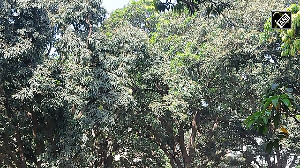An erstwhile CIA South Asia analyst and former senior Congressional staffer on the Senate Foreign Relations Committee, Lisa Curtis, who is currently a senior fellow at the conservative Heritage Foundation, continues to harbour suspicions that United States intends to meddle in the Kashmir issue.
Curtis, who was the lead panellist at a conference at The Brookings Institution titled, The US-India Nuclear Agreement: Expectations and Consequences,' said, "During the Bush Administration, US officials broke the habit of viewing India solely through the India-Pakistan lens. Washington developed a greater appreciation for the Indian democratic miracle and viewed our shared democratic principles as the bedrock for a broader strategic partnership."
She said that the US "also began to view India's growth in power as a positive development for the balance of power in Asia," but argued that "there is some uncertainty over whether the Obama Administration will continue on this path and maintain the momentum in improving US-India ties."
Curtis, who was participating in the panel titled, US-India Relations after the Nuclear Agreement, said: "The first question is whether the new administration will adopt a different geo-strategic orientation toward Asia broadly and South Asia specifically that would inevitably impact Indo-US ties."
She recalled that "President Obama's statements during last year's presidential campaign linking the resolution of the Kashmir conflict to the stabilization of Afghanistan have raised concerns that the new administration might revert back to policies that view India narrowly through the South Asia prism rather than as an emerging global power it has become."
"Indian concerns have been somewhat assuaged by the fact that Richard Holbrooke's designation includes Afghanistan and Pakistan, not India," Curtis acknowledged.
But, she argued, "Still this idea that the US should try to help resolve the Kashmir issue so that Pakistan can focus on reining in militancy on its Afghan border persists, and, in my opinion, is a misguided conception of the problem. How the challenges in South Asia are conceptualised is enormously important and will determine whether the new administration will make any headway in resolve the issues."
Curtis said, "It is one thing to acknowledge that greater regional cooperation and integration are necessary to defuse tensions and to see to transform strategic perceptions of the region, but yet quite another to hint that the US will seek to insert itself into a highly contentious dispute, especially when it could raise false expectations that end up fuelling the conflict."
She argued that "Kashmir must be handled with care. This is a multi-faceted dispute with a long history -- 62 years in fact, the same age as the Palestinian-Israel conflict. It involves questions about strategic positioning and national identity. Over the last 15 years, the dispute itself has been overshadowed by the tool Pakistan has adopted to press its agenda -- that of supporting radical religious militants. These are militants who have since adopted pan-Islamic agendas that connect them to international terrorist groups."
"Therefore, a different way to conceptualise the challenges in South Asia could be to determine how to convince Pakistan to give up support for extremists to achieve its foreign policy objectives," she added.
Curtis said, "This is not to say we should ignore the importance of encouraging better ties between Pakistan and India. The US can play a productive role by continuing a quiet diplomatic role that encourages the two sides to resume bilateral negotiations that reportedly made substantial progress, even on Kashmir, through back channel negotiators from 2005 to 2007."







 © 2025
© 2025